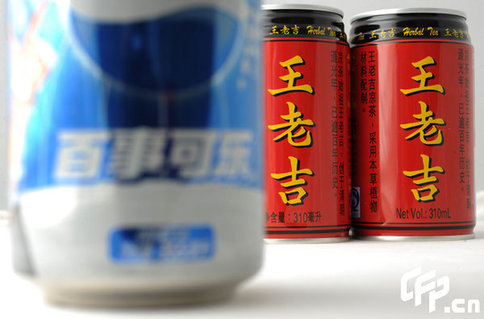 |
| Pepsi and Chinese Wanglaoqi had an M&A attempt last year [CFP] |
But Su Chang, macro-economic analyst at China Economic Business Monitor, told China Daily that such cases do not reflect the whole picture. "They are limited to resource-oriented sectors," he said.
According to the report, more than half the companies establish an overseas presence through sales offices, compared with only 8 percent through M&As, and "the general situation will not change in three to five years".
Su forecast that investment will pick up only after the global economy takes a turn for the better in the last quarter of this year.
A recent report by PricewaterhouseCoopers agreed, saying Chinese companies' overseas investment will rebound when the global economy comes out of recession.
Besides the dire economic situation, the fear of trade protectionism and limited funding channels are also obstacles.
"There has been a slowdown in growth of overseas investment because the biggest concerns are a deteriorated investment environment and difficulty in fund-raising," Sun Yanbin, vice-chairman of CCPIT Hubei branch, told China Daily.
The CCPIT report also shows the major challenges Chinese companies encounter are worries about quality and safety of products.
This year, the government has rolled out policies to stimulate overseas investment but the companies surveyed reflected only a low level of satisfaction with credit insurance and foreign exchange facilities.
"We are trying to simplify the procedures and revise credit insurance rules," said Sun Lujun, deputy director of the State Administration of Foreign Exchange.
From 2002 to 2007, overseas investment grew 60 percent annually. By 2008, the cumulative investment was worth US$130 billion with non-financial overseas investment surging 64 percent to US$40.6 billion that year.
(China Daily April 23, 2009)